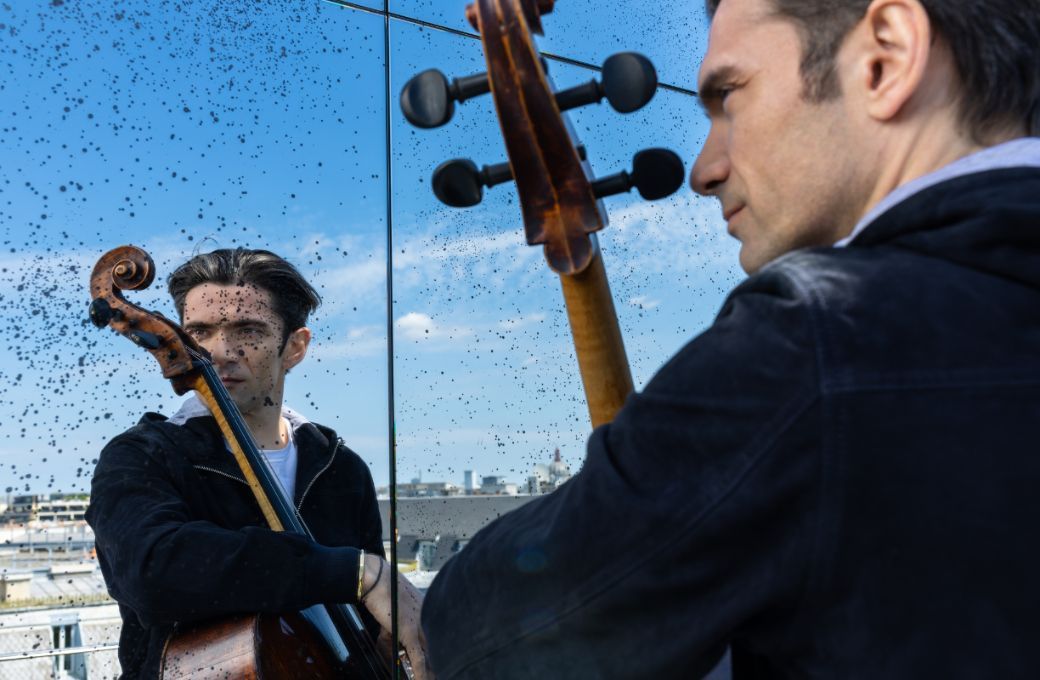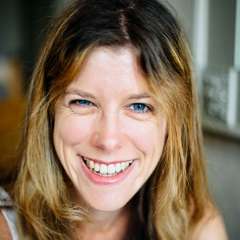“Just so you know, they told me 45 minutes and I have my next meeting at a quarter past 12. Is that okay?” Gautier Capuçon, on the other end of the video call, is being true to form on this December morning: bang on time, direct, genial, and expecting to get straight down to business. Always with him, the social words are saved mostly for afterwards, in what time remains after the job is done.

Which is perfectly okay. In fact, it’s something of a minor miracle that this French cellist – consistently named one of the world’s busiest in Bachtrack’s Classical Music Statistics – is able to spare any time at all for a journalist. His schedule as we speak is typical: deep in rehearsals for the imminent star-studded Notre Dame de Paris Reopening Concert, having just returned from performing the Dvořák concerto in Montecarlo under Charles Dutoit, following a European tour of Schubert piano trios with Rudolf Buchbinder.
Yet the Lugano concert prompting this particular interview is attached to work so important to Capuçon that, for the amount of time he manages to find for it, it’s almost as if he has a magician’s hat squirrelled away somewhere from which to pull out magical extra hours: young artists, and specifically, his Fondation Gautier Capuçon.
Founded in 2022, the not-for-profit Fondation Gautier Capuçon is open to 18–25 year old string players and pianists of all nationalities at the beginnings of professional careers, with auditions held annually. It offers up to two years of financial scholarships – €10,000 each year – along with performance opportunities designed to get their concert careers off the ground. For one or a few laureates each year, chosen by Capuçon with his artistic council members pianist Frank Braley and conductor Alain Altinoglu, there’s also the chance to record a first album for the foundation’s series on Warner Classics.
Young as it is, the foundation’s impact has already been immense, with over €400,000 of scholarships awarded over the first three years, and over 100 concerts given in 2024 alone. “There is much still to do, but I’m proud of what we’ve achieved so far with just our four little hands,” smiles Capuçon. “It’s still just me and the foundation’s Executive Manager Danuta Pieter taking care of it.”
The concert at LAC Lugano Arte e Cultura in March represents the final date of a week-long tour, which sees Capuçon perform Brahms’ Piano Quartet no. 1 and Robert Schumann’s Piano Quartet in E flat major and Fantasiestücke with three laureates from the foundation’s inaugural year in 2022. The Italian pianist Martina Consonni, French violinist Sarah Jégou-Sageman and French violist Anna Sypniewski all now regularly perform together. “The three of them are very artistically proactive, with lots of projects and suggestions,” he outlines with admiration. “Sarah and Martina knew each other already, through both studying at the Kronberg Academy; then Anna met them at the foundation, and I’m so happy to see these connections happen. It’s really this that I’m building – a family of artists.”
“The technical and artistic level is of course the priority when selecting, but there has to also be an appreciation of what we are doing, humanly speaking. I don’t want it to be just like a cash machine.” He concludes: “This is the first time I’ll play with all three of them together, and it will be great to have a week to rehearse and perform repertoire that I know they really love to play. Also, to travel together and share things around the concert – to have the time to talk about music, and also their needs, development and next projects.”
There’s an extent to which throwing himself in, and getting warmly alongside people, is just how the 43-year-old ticks in general. But it also mirrors what he himself received as a 19-year-old studying in Vienna with Heinrich Schiff, who would end an intense day of lessons by sharing a meal with Capuçon and his classmate, cellist-conductor Daniel Blendulf. Similarly, the scholarships reflect the financial support he himself was given by foundations, “without whom I would have not been able to go and study in Vienna for three years – and if I hadn’t gone, who knows…?”. Finally, its concert engagements are about growing the sort of crucial trust once bestowed in him by concert promoters and older musicians. Which in turn brings us neatly back to Lugano, because it was in Lugano, during his early twenties, that he first performed with an older musician who was to give him some of the most profound early-career support he ever received: Martha Argerich.
“She invited my brother and I to play Mendelssohn’s First Piano Trio with her at her festival there,” he explains. “I remember taking the train to her house in Brussels to rehearse, and I will never, ever forget that rehearsal. It was the first time we were playing with her, two young artists with this legend... And you’re not totally sure how you should behave. But she immediately spoke to us equal to equal, which was so surprising in a way, and so humble. She is always searching for the music. The connection was strong from that day on, musically but also humanly. She was always there for me.”
“Lugano holds many memories,” Capuçon says, “including of the Schumann Fantasiestücke and Piano Quartet in E flat major, because I performed and recorded them both with her there – and I wanted those memories for this coming concert, because although her festival doesn’t exist anymore, it’s so present in my heart as a musician, and she herself remains very present in my life. I feel very privileged.”
The other musical relationship captured in that anecdote is Capuçon’s oldest one of all: with his brother Renaud. After partnering frequently over the first 15 or so years of their professional lives, yielding much musical gold, for the past decade they’ve collaborated seldom or not at all. However, Renaud’s stepping in for the tour of Schubert piano trios, after Hilary Hahn was forced to withdraw in November due to injury, heralded 2025 as a year when the Capuçon brothers would consciously resume their onstage relationship. They’re about to co-host a Carte Blanche chamber programme at the Sommets Musicaux de Gstaad festival. Two notable July dates are performing Brahms’s Double Concerto at Rencontres Musicales d’Evian, and reprising their trio partnership with Argerich at the Verbier Festival.
Asked what has changed, Capuçon picks his words with care. “I think sometimes things happen that mean it’s the right moment, without it being forced. Before, it was so beautiful together and so easy that maybe the…. I don’t like the word mistake so much... but maybe it was that we had done too much together, and we arrived at this point at which both of us needed to breathe and to develop in our own way. And so now we have to find the balance, to keep this freedom that we both have.”
Did it feel, in November, that their onstage dynamic has shifted at all? “No, it’s the same, in the sense that it’s as though we never stopped playing together. And this will always be the case, I’m sure. But then we ourselves are different – older, and both more settled; and it’s very nice to also be feeling this peaceful way of playing back together. I’m looking forward to the next chapter.”
Another important recent project has been recording the Elgar and Walton cello concertos with the London Symphony Orchestra and Sir Antonio Pappano – his and Pappano’s first collaboration, despite knowing each other for 20 years. From Capuçon’s description of the sessions, it was clearly as artistically rich in the making as it is now tremendous in the listening. Future projects he cites with pleasure include touring the Dvořák concerto with Riccardo Chailly and the Filarmonica della Scala, and his April return to the Vienna Musikverein to perform the Brahms Double Concerto with Augustin Hadelich and the Vienna Philharmonic under Christian Thielemann. “The Vienna Philharmonic, and Vienna itself, are extremely special to me,” he says with warmth, “and funnily the Musikverein is the concert hall I have played the most, because in Paris my concerts have been spread over the different halls.”
Other names popping up in his 2025 calendar include regular violinist partners such as Lisa Batiashvili and Leonidas Kavakos, who he describes as musicians he not only admires, but loves as friends. In fact, he says, it’s because of wanting to cherish such musical friendships, as well as his two daughters, that recently he’s been trying to reduce his number of concerts. “There is always a good reason to say yes – a great project or tour, a friend, a recording – so that’s why I find it very difficult…” He laughs. “But when I look at the schedule and don’t have that many free days... I’m not complaining, because I see how difficult it is, and I feel very privileged. But it does kind of freak me out!”
Our time up, it feels apt to close on the three younger colleagues whose Lugano concert in particular takes him back to where it all started for him. “I’m very proud of them,” he emphasises, “and for me, the most beautiful gift would be that the audience love them; for them to be re-invited, to have pleasure on stage, and to be happy. That is what is most important both for the foundation, and for me as a musician.”
Gautier Capuçon and laureates of Fondation Gautier Capuçon perform Brahms and Robert Schumann at LAC on 14th March.
This article was sponsored by Fondazione LuganoMusica.


